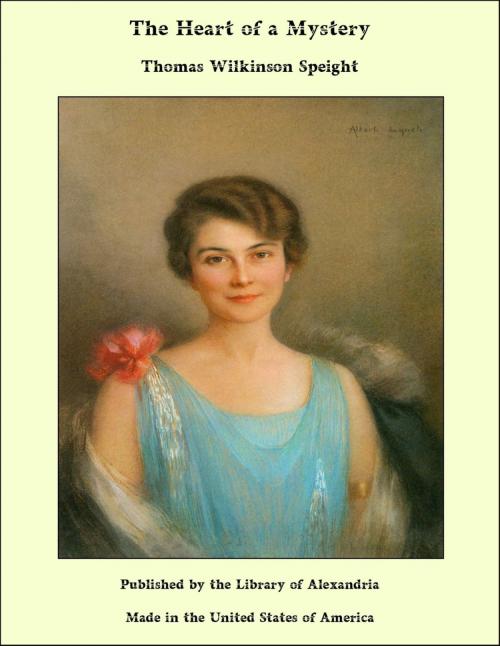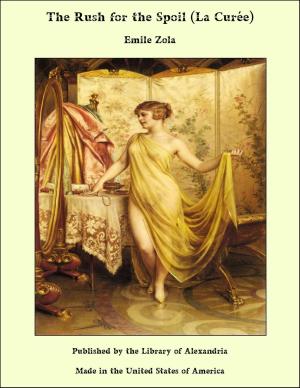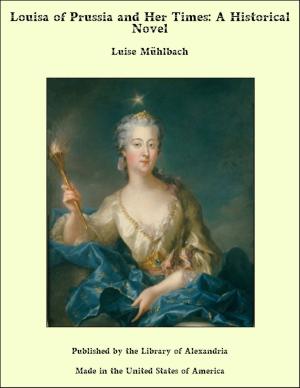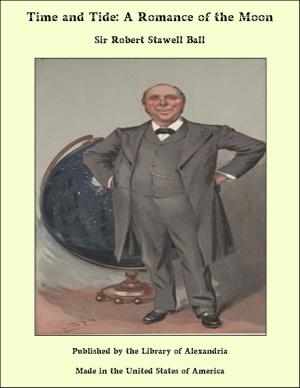| Author: | Thomas Wilkinson Speight | ISBN: | 9781465621719 |
| Publisher: | Library of Alexandria | Publication: | March 8, 2015 |
| Imprint: | Language: | English |
| Author: | Thomas Wilkinson Speight |
| ISBN: | 9781465621719 |
| Publisher: | Library of Alexandria |
| Publication: | March 8, 2015 |
| Imprint: | |
| Language: | English |
On a certain bitter December evening, when the present century was several years younger than it is now, Miss Pengarvon, of Broome, in the shire of Derby, sat in the Green Parlor at the Hall, working by candle-light at some piece of delicate embroidery. The fingers of the old case-clock pointed to half-past ten--an exceptionally late hour in that remote place. Miss Pengarvon was alone. Her sister, Miss Letitia, had been suffering from neuralgic pains in the head, and had retired an hour ago. Barney Dale, the major-domo and, in point of fact, the only male member of the establishment, together with his wife, had gone into the village to visit a sick relative, and there was no knowing at what hour they might return. The solitary housemaid, having nothing to sit up for, had been glad to exchange the chilly gloom of the huge nagged kitchen for the comfort and warmth of bed. Earlier in the evening snow had fallen to the depth of two or three inches, but the sky was clear again by this time and the stars were glittering frostily. Except for the ticking of the clock and the occasional dropping of a cinder, silence the most profound reigned inside the Hall and out. Now and then Miss Pengarvon's needle would come to a stand for a moment while she snuffed the candles, after which the monotonous stitching would go on as before. Be it observed that candlesticks, tray, and snuffers were all of silver, although the candles themselves were of a cheap and common kind. Miss Pengarvon was desirous of completing the work on which she was engaged before going to bed. Both she and Miss Letitia were remarkably skillful with their needles, and, gentlewomen though they were, were not above seeking payment for their work. But this was a secret known to themselves and Barney Dale alone. Once a month Barney went over to a certain town some score miles away, where he found a ready market for the proceeds of the untiring industry of the two ladies at the Hall, without anybody being the wiser as to whose handiwork it was. The money thus earned formed a welcome addition to the very limited income of Miss Pengarvon and her sister. At this time Miss Pengarvon was close on her forty-fifth birthday. She was very tall, and grim, and gaunt. The normal expression of her features was harsh and forbidding. She had fine teeth, an aquiline nose, and unsympathetic blue-grey eyes, with a cold, stony gleam in them, deeply set under bushy brows--eyes which looked as though they had never melted with tenderness or softened with tears. The mass of her dark-brown hair, which began to show signs of the flight of time, was coiled round the crown of her head and held in its place by a high comb, while three small puffs or curls, which were generally kept in paper till mid-day, decorated each side of her forehead. When not engaged with her needle, she wore black lace mittens, and she always changed her morning dress of black bombazine for one of black silk before dinner. The dress she was wearing had been both dyed and turned, but was still good for two or three years' longer wear. Of Miss Letitia it is enough to say that she was a copy, in somewhat less pronounced colors, of her sister as far as one human being can be a copy of any other; indeed, by comparative strangers, she was not infrequently mistaken for Miss Pengarvon.
On a certain bitter December evening, when the present century was several years younger than it is now, Miss Pengarvon, of Broome, in the shire of Derby, sat in the Green Parlor at the Hall, working by candle-light at some piece of delicate embroidery. The fingers of the old case-clock pointed to half-past ten--an exceptionally late hour in that remote place. Miss Pengarvon was alone. Her sister, Miss Letitia, had been suffering from neuralgic pains in the head, and had retired an hour ago. Barney Dale, the major-domo and, in point of fact, the only male member of the establishment, together with his wife, had gone into the village to visit a sick relative, and there was no knowing at what hour they might return. The solitary housemaid, having nothing to sit up for, had been glad to exchange the chilly gloom of the huge nagged kitchen for the comfort and warmth of bed. Earlier in the evening snow had fallen to the depth of two or three inches, but the sky was clear again by this time and the stars were glittering frostily. Except for the ticking of the clock and the occasional dropping of a cinder, silence the most profound reigned inside the Hall and out. Now and then Miss Pengarvon's needle would come to a stand for a moment while she snuffed the candles, after which the monotonous stitching would go on as before. Be it observed that candlesticks, tray, and snuffers were all of silver, although the candles themselves were of a cheap and common kind. Miss Pengarvon was desirous of completing the work on which she was engaged before going to bed. Both she and Miss Letitia were remarkably skillful with their needles, and, gentlewomen though they were, were not above seeking payment for their work. But this was a secret known to themselves and Barney Dale alone. Once a month Barney went over to a certain town some score miles away, where he found a ready market for the proceeds of the untiring industry of the two ladies at the Hall, without anybody being the wiser as to whose handiwork it was. The money thus earned formed a welcome addition to the very limited income of Miss Pengarvon and her sister. At this time Miss Pengarvon was close on her forty-fifth birthday. She was very tall, and grim, and gaunt. The normal expression of her features was harsh and forbidding. She had fine teeth, an aquiline nose, and unsympathetic blue-grey eyes, with a cold, stony gleam in them, deeply set under bushy brows--eyes which looked as though they had never melted with tenderness or softened with tears. The mass of her dark-brown hair, which began to show signs of the flight of time, was coiled round the crown of her head and held in its place by a high comb, while three small puffs or curls, which were generally kept in paper till mid-day, decorated each side of her forehead. When not engaged with her needle, she wore black lace mittens, and she always changed her morning dress of black bombazine for one of black silk before dinner. The dress she was wearing had been both dyed and turned, but was still good for two or three years' longer wear. Of Miss Letitia it is enough to say that she was a copy, in somewhat less pronounced colors, of her sister as far as one human being can be a copy of any other; indeed, by comparative strangers, she was not infrequently mistaken for Miss Pengarvon.















